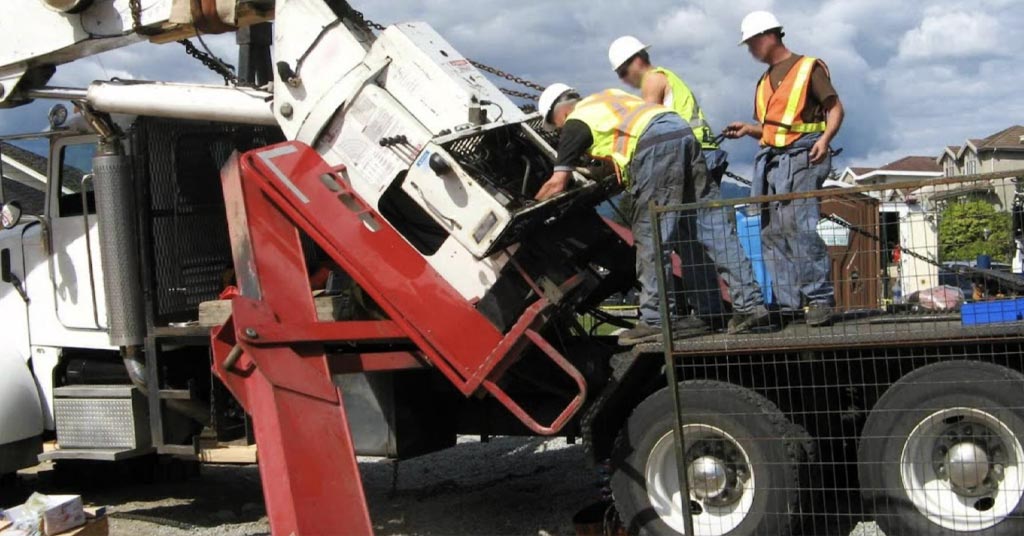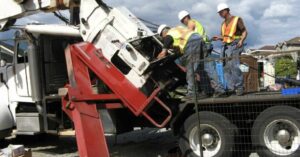
Workers in BC are Being Sent to Mandatory Abstinence Programs Run by Private Companies in Order to Receive Disability Benefits
‘12-step’ abstinence programs could do more harm than good for workers struggling with addictions, drug policy experts say
Workers in BC are being funneled into primarily private, abstinence based 12-step recovery programs in order to receive disability benefits, newly obtained documents show.
Information from a Freedom of Information Request obtained by the Workers for Ethical Substance Use Policy shows that The Workers’ Compensation Board of British Columbia, which operates as WorkSafe BC, has a number of contracts with private, for profit recovery programs for workers.
In some cases, workers are required to undergo the recommended course of treatment with the companies contracted by WCB in order to receive worker’s compensation.
“The current regime of accommodation for employers in returning employees to work involves participation in one of these treatment facilities, usually at the expense of the employee, and up to five years of monitoring,” Shane Calder, Program Coordinator with the The Canadian Drug Policy Coalition told PressProgress.
“People would be surprised to know the degree to which people are actually compelled to go to one of these treatment centers. The Canadian Drug Policy Coalition is certainly an advocate for evidence-based effective treatment, on demand. That being the case, their success rate really approaches random, as opposed to any kind of cavalier and persistent effort.”
The facilities that the Workers Compensation Board has contracts with include six “residential addiction services” that are based in the 12-step method:
- The Orchard, a 12-step, private for-profit centre,
- The Last Door, a 12-step centre
- Homewood, a 12-step centre
- Edgewood, which operates several private for-profit 12-step centres in BC
- Cedars, a 12-step, private for-profit centrer
- Together We Can, which has a 12-step, and a non-twelve step centre
The entire list of 20 facilities also includes inpatient and outpatient addiction treatment providers, and medical monitoring companies that WCB has contracts with.
However, WorkSafeBC says that despite the document revealing the companies they have contracts with, workers are able to request an alternative course of treatment, if they deem the provider “suitable.”
“WorkSafeBC considers a wide range of treatment options when reviewing a request for a health care service and may approve any health care provider (including non-contracted providers) if the provider is considered suitable based on the worker’s circumstances and the merits and justice of the claim,” a spokesperson for WCB told PressProgress in a statement.
“If a worker disagrees with the recommended treatment, WorkSafeBC considers the evidence of potential benefits and risks of the treatment, as well as the worker’s individual circumstances. It is important to note that WorkSafeBC also considers input from the worker’s attending physician when considering treatment options.”
However, in some cases, workers are referred to Independent Medical Examiners, who differ from their regular physicians, and in some cases have conflicts of interest related to the treatment centres they are referring people to.
The spokesperson added that worker’s are entitled to compensation for the duration of their injury or disease, but that benefits may be reduced “if the worker is obstructing a medical examiner or persisting in practices that could delay recovery.”
They did not specify what those practices were.
The BC Humanist Association submitted reports to the government in 2016 and 2018 calling on the government to require addiction facilities to offer non-religious (non-12-step) treatment options.
The BC Humanist Association recommends that the government “expand support for secular, evidence-based addictions treatment programs,” and “regulate and inspect addictions treatment facilities to protect patients’ freedom of and freedom from religion.”
“12-Step programs, like AA, repeatedly and directly appeal to god or a higher power and that’s further stigmatizing to the millions of British Columbians who do not share those beliefs,” Olivia Jensen, policy research at the BC Humanist Association told PressProgress.
“In BC there is little to no oversight of these centres, meaning that we don’t even know whether they’re working or not. And there’s a lot of strong evidence out there that AA and 12-Step approaches don’t work for a lot of people.”
The province’s Chief Coroner Lisa Lapointe is also calling for more oversight of the treatment centres in BC, which currently have no regulations.
In the most recent Coroner’s Death Review Panel in 2022, Lapointe stated that there is a “need to provincially regulate and appropriately oversee treatment and recovery programs and facilities.” At the moment, standards of care and patient outcomes are not monitored or evaluated.
Calder says mandating treatment in any form, particularly when it does not have proven outcomes, may not be addressing the correct problems workers are experiencing in the workplace.
“What evidence is the employer using to suggest that this path is going to achieve the solution that they want to have happen? How do they know that this person is a drug user in the first place? What was even a safety concern on the worksite to begin with?’’ Calder asked.
“We know that issues such as lack of sleep and poor training, are far more likely to result in workplace injuries than drugs and alcohol. So what problem are employers trying to fix? And if they’re trying to fix it, then how do they know that the path that they’re taking vis-a-vis for-profit 12-Step treatment centers are actually doing that?”
Requiring complete abstinence from drugs or alcohol while on monitoring programs also lowers a person’s tolerance to drugs, making them more susceptible to drugs on the unregulated market, Calder says.
According to a 2022 report from the BC Health Coalition and the Canadian Drug Policy Coalition, drug policy in the province should be regulated and accountable to the province and the public, and determine treatment options on a case by case basis.
“It’s kind of a one-size-fits-all solution to what is a tremendously complex problem,” said Calder.
“Getting to the root of why people use drugs, and how to support people in not dying as a result, or maybe treating the underlying conditions that are promoting drug use—those solutions have to be personalized.”
Usman Mushtaq, Coordinator with the BC Health Coalition says an underrepresented part of this conversation is the way this reliance on privatized facilities is using taxpayer money without any accountability.
“What the evidence shows is not just in BC, not just in Canada, but globally, is that when private for-profit interests get involved in healthcare, patients have worse outcomes and cost taxpayers more,” Mushtaq told PressProgress.
“The government through WCB is handing out contracts to these facilities and there’s not really any regulation around that, there’s no accountability around that.”
Mushtaq also adds that workers may feel pressured by employers to undertake a specific course of treatment.
“Some did feel coerced that, ‘hey, my employer is saying I should go to this particular treatment facility, even if it doesn’t align with my healthcare goals.’”
Mushtaq says there needs to be a reevaluation of the system so that treatment facilities are held accountable.
“If there’s taxpayer money going into for profit facilities, what are the regulations that these facilities must follow? And what is the accountability with taxpayer money?”
Calder adds that evidenced based treatment options are needed, but profit shouldn’t be a part of the equation.
“Anywhere else that we see for profit, there is a bottom line. And when it comes to health care, when it comes to substance use, there can’t be a bottom line. The bottom line is that person’s health,” Calder said.
“How come we’ve come to rely on one of the most complex problems in our society, on people who are there to make a buck? How do we get there? We got there because good people are not paying attention.”
Our journalism is powered by readers like you.
We’re an award-winning non-profit news organization that covers topics like social and economic inequality, big business and labour, and right-wing extremism.
Help us build so we can bring to light stories that don’t get the attention they deserve from Canada’s big corporate media outlets.
Donate



